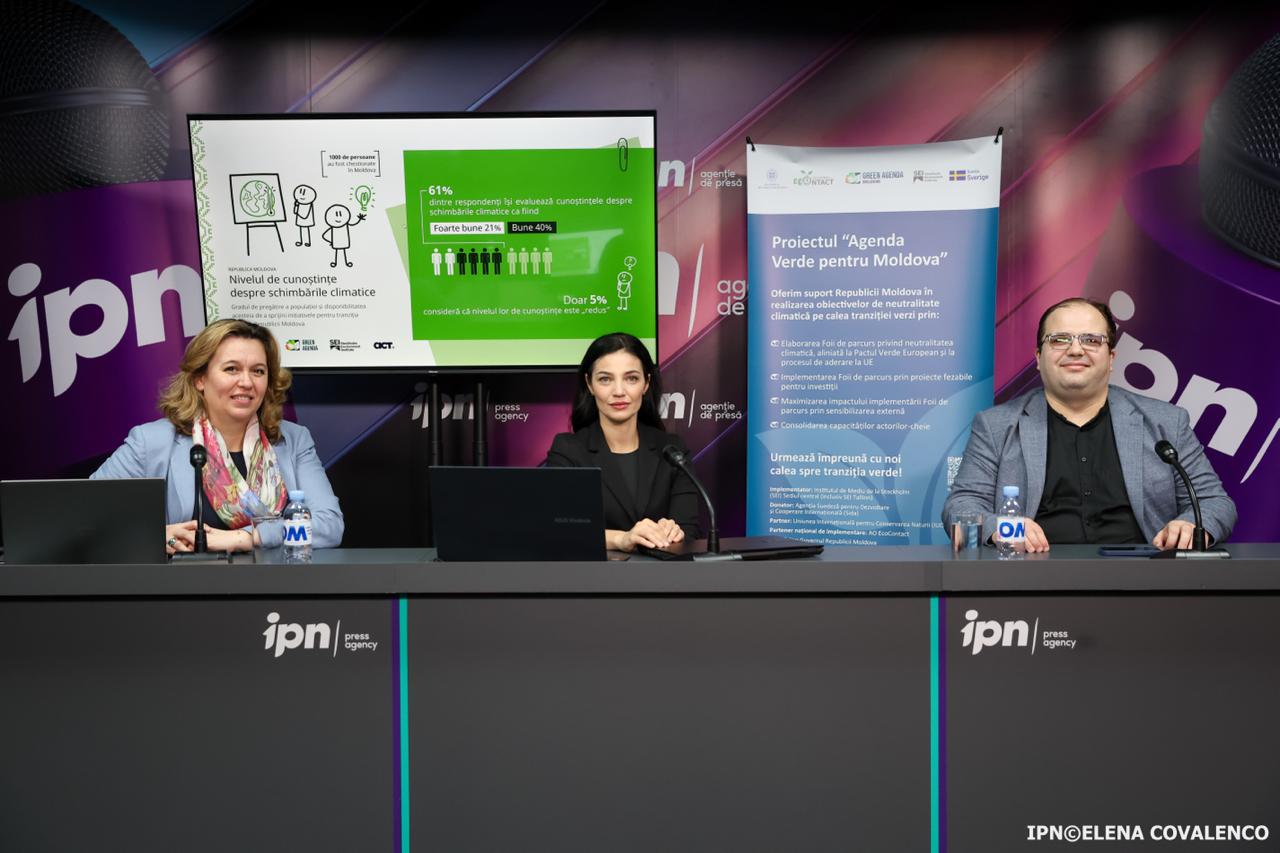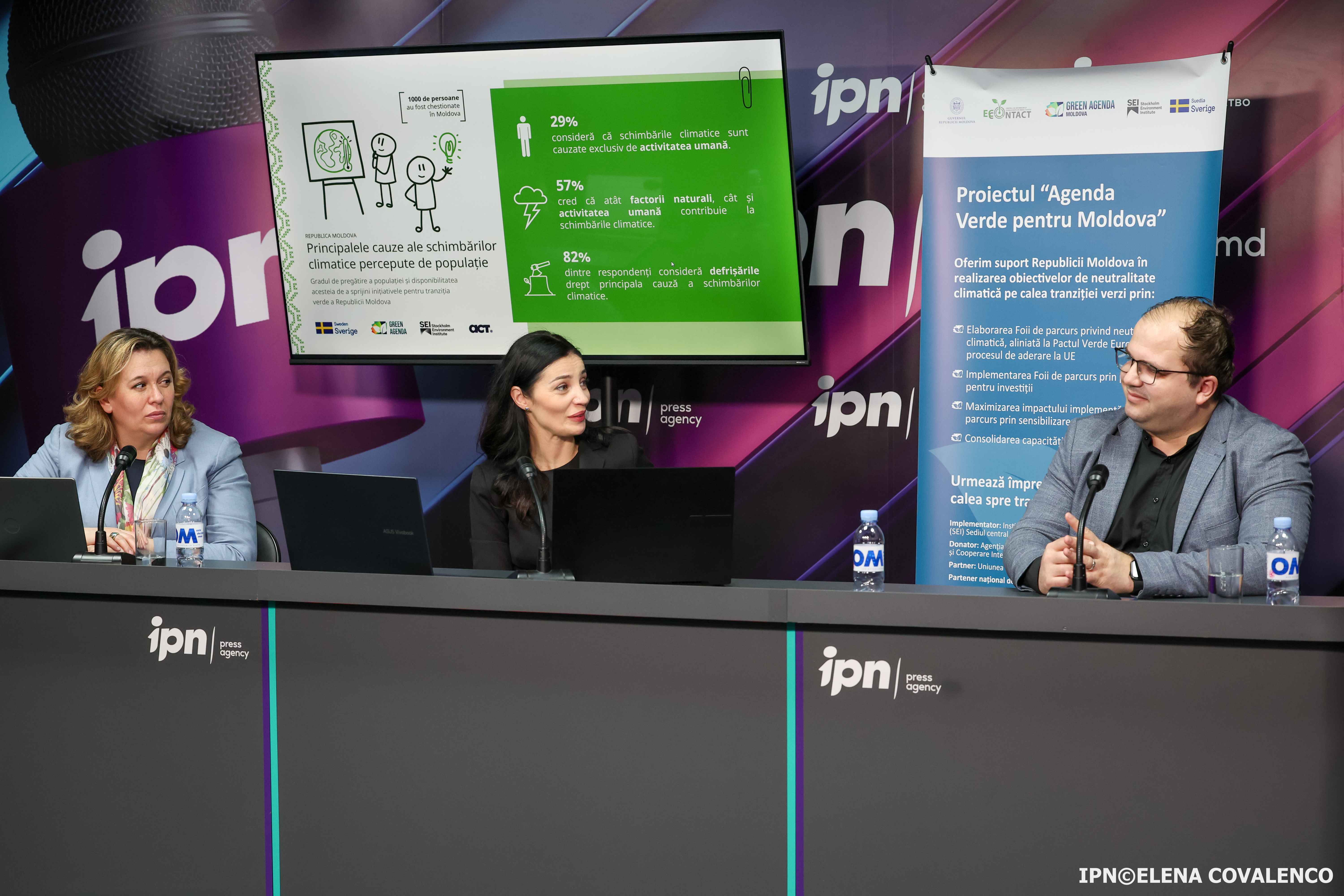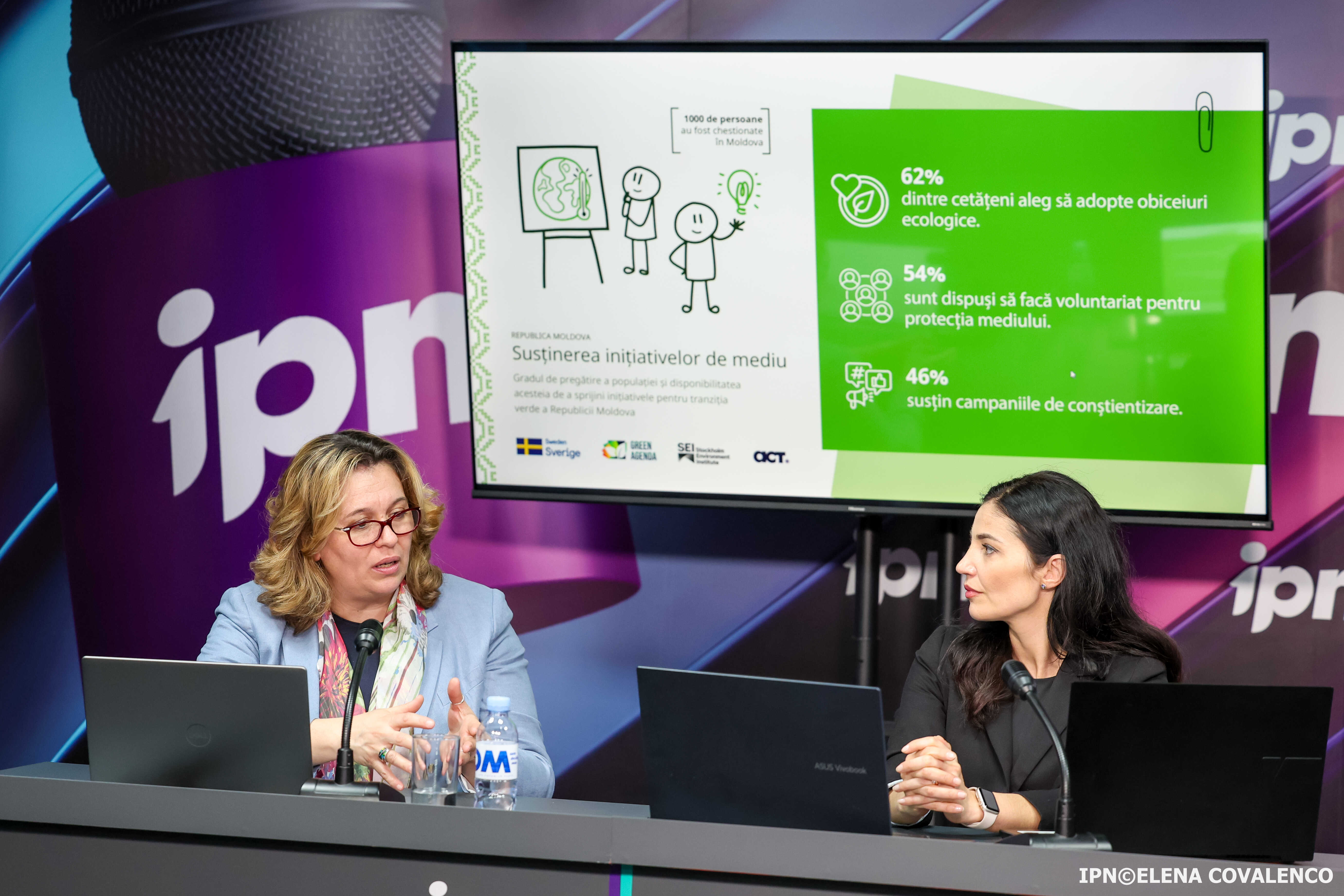Understanding public support for Moldova’s green transition: A study by Stockholm Environment Institute
.jpg)
A new study by Stockholm Environment Institute (SEI) and ACT Global offers key insights into public perceptions of Moldova’s green transition, providing valuable guidance for policymakers shaping environmental and energy policies. The research examines Moldovans’ views on climate change, environmental priorities, awareness, and willingness to engage in green initiatives.
As part of the Green Agenda for Armenia, Georgia, Moldova, and Ukraine project, funded by the Swedish International Development Cooperation Agency (Sida), the study was presented at a public event in Chișinău. Experts in the environmental and economic fields – including Iordanca Rodica Iordanov, co-lead of the Green Agenda project, and Stas Madan, Program Director at Expert-Grup – discussed the findings and their implications for Moldova’s environmental policies.
Core climate concerns and personal impacts
Environmental concerns vary across the population, with the most frequently cited issues being waste management (67%), air quality (58%), and access to renewable energy sources (54%). Additionally, 63% of respondents cite declining food quality as a major environmental concern.
Regarding climate change, 73% say it affects them personally or impacts those people close to them. Furthermore, 85% report experiencing negative health effects and 51% mention economic difficulties caused by climate-related factors.
While 76% of respondents consider the green transition necessary, only 38% have made significant lifestyle changes to reduce their environmental impact.
Sources of information and climate change awareness
The study indicates that 61% of respondents consider their knowledge of climate change “good” (40%) or “very good” (21%), while only 5% rate it as “poor”.
Sources of environmental information vary by age group and location:
· Television is the primary source for people over 45, rural residents, and pensioners.
· Facebook is favoured by individuals aged 45–54, those with vocational education, and working professionals.
· Family, friends, and colleagues are key sources of information for urban residents and those with higher education.
Perceptions of renewable energy and energy dependence
Concerns about Moldova’s reliance on external energy sources are widespread, with 65% of respondents highlighting this issue. Meanwhile, 78% of young people aged 25–34 support the expansion of solar and wind energy as a solution.
Furthermore, 71% view renewable energy as a more stable source than fossil fuels, while 50% of university graduates believe the government should provide financial incentives to encourage renewable energy adoption.
European integration and international support for environmental policies
The findings indicate that 64% of respondents see international organizations and donor support as crucial for environmental protection. Additionally, 40% believe EU integration plays a significant role in shaping Moldova’s environmental policies.
Public engagement in environmental protection: challenges and barriers
The study highlights that 57% of respondents actively participate in environmental protection efforts, with waste recycling and reduction being the most common activities. However, participation is limited by several factors, including:
· Lack of time (62%)
· Lack of eco-friendly habits (39%)
· Insufficient information about environmental initiatives (34%)
Implications and next steps
The study, which involved 1,000 respondents and has a margin of error of +/- 3.1%, offers a data-driven perspective on Moldovans’ attitudes toward the green transition, highlighting key areas for policymakers. While public support for sustainability initiatives is strong, effective implementation depends on raising awareness, increasing financial incentives for renewable energy, and addressing economic and social challenges.
The full report is available in Romanian and English on the official Green Agenda project website.



